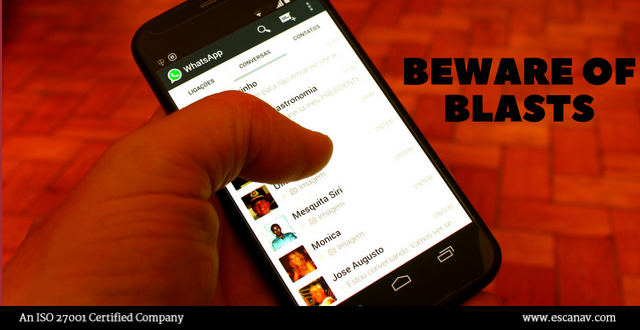WhatsApp has already been the de facto application for spreading news rapidly among people and groups. This has led to cybercriminals using it to bait persons who are not technically savvy to fall prey. There are all kinds of scams and hoaxes circulated every day via WhatsApp. The app has been grappling with a fake news and rumor-mongering problem in India. Bogus cancer cures and spurious quotes apart there are 90%-95% of disinformation that originates and spreads via Whatsapp.
WhatsApp has rolled out a new feature that lets users identify the messages that are forwarded, as the popular messaging app looks to combat fake news and false information in India. Recently, WhatsApp unleashed a user awareness drive in the country after drawing flak from the Indian government over fake and provocative messages being circulated on its platform.
eScan advises WhatsApp users to beware of new malware scams which try to lure users by offering free internet access via WhatsApp. But the precaution measure to stay safe from such scams and hoaxes has always been the same — dodge them.
- WhatsApp offers: There are deceptive campaigns coming up with novel ways of luring in victims. You may receive an offer from a fake e-commerce site with a popular name to incite you to click on the link. Ensure to check the name of any website received via WhatsApp.
E.g: If abc is a legit company and you receive an offer from https://abc.monsoonoffers.com This webpage does not belong to ‘abc.com’, but belongs to “monsoonoffers.com”, which could be a malicious site. This is very common for banking, shopping or telecom websites.
- Misspelled names of the site: Sometimes well-known names are misspelled on purpose to mislead the consumers and confuse them to do phishing. On clicking on such links it redirects you to unfamiliar websites having malware which assist hackers to access your mobile device.
Eg: If abc.com is a well-known site and you receive a text as “abbc.com” This may look similar but is a malicious site to hack your device and access data.
- Spam on WhatsApp: You may have seen various spam messages forwarded by users claiming to get free talk time or upgrading to WhatsApp Gold plus etc. Before attempting to forward such messages, always check for domain name and website. Adding data and doing some task as said on their website may result in your mobile device being infected by some malware. There are several scripts present on such website which may be executed.
- Fake Applications: Please check before downloading APK files or Android applications for a smartphone. Links such as https://play-google.com/store/apps/com.ife.google do not belong to Google. Ensure to check for verified Google play store links to download applications for Android devices and App Store for iPhone devices.
eScan observes that such hoax messages spread by fake users that are trying to deceive and tempt you to act in a certain way. Avoid clicking on such links and refrain from getting hacked via WhatsApp. We advise all users to not forward such malicious links/texts too. If you need to make sure of the message, we suggest you search online for more information on such messages.
eScan has a varied range of products to protect your mobile devices from getting hacked which include eScan Mobile Security for Android, eScan Tablet Security for Android and eScan Mobile Security for iPhones & iPads.
For more updates on the eScan blog, click here.







